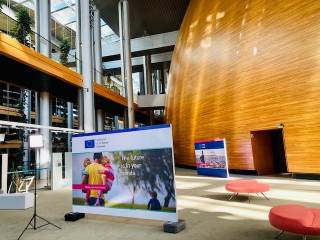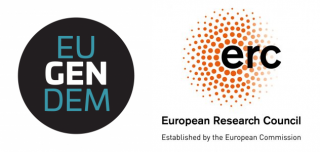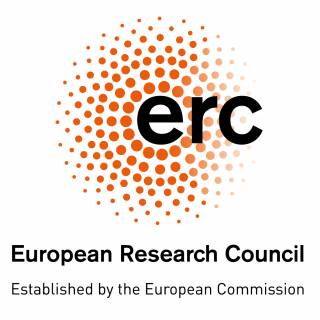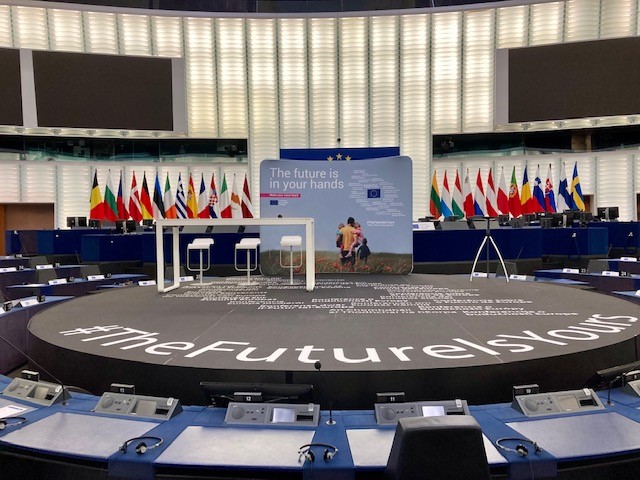The European Parliament in Strasbourg is currently the centre of what the EU calls an “unprecedented democratic exercise”. Over four weekends in September and October the Parliament is a meeting spot for 800 European citizens who have been randomly selected for the Citizens’ Panels of the Conference on the Future of Europe.

The task of the Citizens’ Panels is no less than to formulate recommendations on what the EU should do to tackle the most burning contemporary topics, including democracy.
The Conference on the Future of Europe is an EU reform process officially launched in May 2021 as an initiative shared and guided by the three European institutions: the Council, the Parliament, and the Commission.
The Conference on the Future of Europe has been particularly important to the Parliament. When the Commission President Ursula von der Leyen was elected – bypassing the parliamentary Spitzenkandidatur process – she made a conciliatory pledge to the Parliament to move forward with the Conference.
The tensions around and the weight given to the Conference are well reflected in the fact that there has been a lot of infighting between the three institutions, which delayed the process. The Parliament has involved its most heavy-weight political leaders in the process, as is well analysed in a chapter in our forthcoming edited book (Johansson and Raunio 2022).
The Citizens’ Panels were preceded by collecting everyone’s ideas and input through an open digital platform. A first interim report gathering this input was produced in August. Its findings are interesting. Most contributions (in proportion to inhabitants) had come from Malta, Luxembourg, Austria, and Belgium. A bit surprisingly, considering the lack of public debate in the country, fifth most contributions, 616 in total, had come from Finland. The least contributions (again in proportion to inhabitants) had come from Romania, Poland, and Estonia, but also some “old” member states like Italy, Spain, and Greece were at the bottom of the chart.
Men had participated in significantly greater numbers as compared to women. 63 percent of those who had declared their gender had said that they were men, whilst only 15 percent were women.
“Democracy” was the most commented upon topic.
This input through the platform formed a loose basis for the Citizen’s Panels.
Citizens’ Panels follow the principles of deliberative and participatory democracy. The 800 citizens have been randomly selected paying attention not just to member state representation but also gender, age, geography, socio-economic background, and education. In line with the theme “Future”, 30 percent of the citizens selected came from the 18-25 age group.
Experts’ input to the Citizen’s Panel on Democracy
It was a great privilege to be invited as one of the six experts to speak to the Citizens’ Panels in Strasbourg. The theme of the Citizen Panel 2 was European democracy, values, rights, rule of law, and security.
Overall, the expert talks covered key aspects of European democracy, including elections and participation in elections, as well as the rule of law and the possibilities for the EU to oversee it in member states.
However, there was also an emphasis on the need to talk about European democracy as a much broader question. The different perspectives on this in the experts’ talks could be summed up as a suggestion to pay attention to the practices of democratic decision-making and policy fields which have become particularly relevant for democracy.
A focus on practices meant that the contemporary problems with democracy do not necessarily relate to the formal powers and roles of EU institutions or their relations. Rather there is a need to focus on the practical ways of doing politics (often the informal side) and on the ways that politics is talked about.
When focusing on policies, several experts emphasised questions around digitalisation and artificial intelligence as central to democracy.
European values played an important role in these talks too, and my own speech dealt with equality. Much like the other values enshrined as basic EU values in the Article 2 TEU gender equality has not been fully obtained – with profound consequences for democracy.
According to the Gender Equality Index of the European Institute for Gender Equality (EIGE), EU member states are 67.9 percent gender equal. In other words, they are 32 percent unequal. Gender inequalities have direct consequences for political, economic, social, and civil rights as important dimensions of inclusive citizenship.
In relation to democratic practices, a perspective on gender equality requires making democratic institutions, including EU ones, responsible for acting as gender equal actors.
In relation to policy fields, it is important to hold up the principle of gender mainstreaming: undertaking a gender impact assessment of all policy fields, including for example security or artificial intelligence.
All institutions need to be gender equal in their practical everyday workings and all policy making needs to be based on knowledge about the impact of policies on different genders. Only that way can the principle of gender equality be upheld as a fundamental EU value.
The genderedness of both democratic practices and policies of the EU are indeed at the heart of the EUGenDem project.
The Future
The Citizens’ Panels will make recommendations to a Conference Plenary, which, in turn, will forward proposals to the Conference Executive Board. The three institutions in charge of the process will then decide what to follow up and how to make the EU work better. Results can be expected next year.
The Conference on the Future of Europe will offer multiple opportunities to see democracy in action and to follow the fate and impact of gender equality.
Johanna Kantola is Professor of Gender Studies at the Faculty of Social Sciences, Tampere University. She directs the European Research Council (ERC) funded research project EUGenDem.
Reference
Johansson, Karl Magnus and Tapio Raunio (2022) “Shaping the EU’s Future? Europarties, European Parliament’s Political Groups and the Conference on the Future of Europe” in Petra Ahrens, Anna Elomäki, and Johanna Kantola (eds.) European Parliament’s Political Groups in Turbulent Times (Palgrave Macmillan). Forthcoming.



